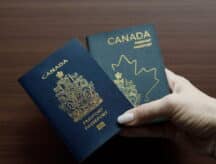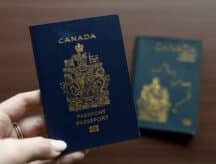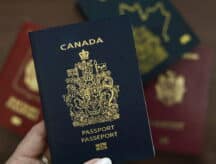Canadian court rules prior application for U.S. residency should not impact future intent to reside in Canada
In a recent federal decision titled Khan v Canada (Citizenship and Immigration), the court determined that an immigration officer’s decision to consider an outstanding US residency application as it relates to an intention to reside in Canada was unreasonable.
Schedule a Free Consultation with the Cohen Immigration Law Firm
The applicant, Khan, is a citizen of Bangladesh. He submitted an application for permanent residence in Canada as a member of the Quebec Investor Class. His wife and daughter were also included in the application as dependents.
On review of the application, the immigration officer had concerns over whether the applicant intended to reside in Quebec, which is one of the requirements of the Immigration and Refugee Protection Regulations (IRPR).
One of the reasons the officer was concerned about the candidate’s intent to reside in Canada was because Khan had been included in an application for residency in the United States that his sister-in-law had submitted in 2012. This application was still pending. After speaking with the applicant about these concerns, the officer was not convinced of his intent and refused his application for permanent residence on the grounds that he could not satisfy the requirement to intend to reside in Quebec.
Khan submitted his application for judicial review, stating that the decision was unreasonable. The court held that the decision was unreasonable for the following reasons.
First, it was “unintelligible” why the officer concluded that an application for US residency from 2012 was inconsistent with the applicant now having a genuine intention to reside in Quebec. As a matter of logic, there is no reason why the two cannot co-exist, as the applicant could intend to reside in whichever country granted him residency first. If that country was Canada, he would reside in Quebec.
Second, the two applications were submitted five years apart. By the time IRCC interviewed Khan, his US application had been pending for 10 years. The officer failed to consider that even if he had been once interested in living in the US, that he could have changed his mind. As proof of this, in Khan’s interview, he stated that he would prefer to reside in Quebec than in the US.
Third, the officer inferred that since the applicant had not withdrawn the US application, that he still intended to reside in the US, and therefore not Quebec. The court says that this is illogical, but it is also unreasonable because he did not have control over the application. In the interview, Khan made it clear that his sister-in-law submitted the application, not him.
This case is important because it demonstrates that an applicant for Canadian immigration is entitled to have dual intent to also reside in the United States. Further, having the intent to reside in the US does not negate the intent to reside in Canada. As the court ruled that the officers decision was unreasonable, a future applicant should not be rejected on these grounds.
How to come to Canada from the US
H1-B speciality occupation visa
IRCC recently announced that they will be creating a streamlined work permit for H1-B speciality occupation visa holders in the US to come work in Canada. IRCC recognizes that many workers are employed in companies in the US that have operations in Canada as well, and that these people often have an H1-B speciality occupation visa.
As of July 16th, H1-B holders in the US and their accompanying family members will be able to apply to come to Canada. The approved applicants will receive an open work permit for up to three years, meaning they can work for almost any employer across the country. Further, their spouses and dependants can also be eligible to apply for a temporary resident visa.
The measure is expected to remain in effect for one year or until IRCC receives 10,000 applications.
Express Entry
Express Entry is Canada’s way of managing skilled worker applications for permanent residence. In 2021, the US was the fourth most common place of residence of Invitations To Apply (ITA) recipients in the Express Entry pool. ITA's are given to applicants when they are selected to apply for permanent residence. US citizens and residents are usually very qualified for Express Entry due to their strong language skills, skilled work experience and high levels of education.
There are three programs managed under Express Entry:
- The Federal Skilled Worker Program for skilled workers with foreign work experience
- The Canadian Experience Class for skilled workers with Canadian work experience
- The Federal Skilled Trades Program for skilled workers with qualifications in a skilled trade
In addition, IRCC recently launched category-based draws under Express Entry, which will give preference to candidates who have a strong French language proficiency or work experience in the following fields:
- Healthcare
- Science, technology, engineering, and mathematics (STEM) professions
- Trades, such as carpenters, plumbers, and contractors
- Transport
- Agriculture and agri-food
Other pathways to consider
The Global Talent Stream is a program that allows Canadian employers in high growth and tech industries to streamline the hiring of skilled workers when Canadians are not available to fill the positions. Although the hiring process under this program requires completing an LMIA, IRCC aims to process these work permits in one month or less.
There are many American business that have affiliate offices and branches in Canada. The Intra Company Transfer allows international business to bring important employees to Canada without the requirement to obtain an LMIA. Employees who work in executive, managerial or specialized knowledge roles may be eligible under this program to work as an intra-company transferee.
Finally, the Start Up Visa program grants permanent residence to entrepreneurs who have sufficient funds to settle in Canada and have the support of a designated number of venture capital funds, angel investor groups, and business incubator organizations. The purpose of the Start Up Visa is to recruit innovative entrepreneurs who will create new jobs in Canada and drive economic growth.
Schedule a Free Consultation with the Cohen Immigration Law Firm
- Do you need Canadian immigration assistance? Contact the Contact Cohen Immigration Law firm by completing our form
- Send us your feedback or your non-legal assistance questions by emailing us at media@canadavisa.com







